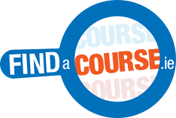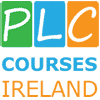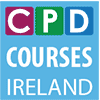This course is currently inactive on Findacourse.ie, use the following link to view other similar courses - Childcare courses on Findacourse.ie
Related courses
QQI Level 5 ECCE Online
Early Childhood Care & Education Course Delivery Blended Online option – Live Webinars, recorded lectures and classroom sessions Learners will have support through contact with their online blended learning tutor by phone and by email throughout the duration of the course. Qualifications QQI Level 5 […]
Bachelor of Arts in Early Childhood Education and Care
Why choose this course? Chevron College recognises that every childhood lasts a lifetime and acknowledges the significant role the Early Childhood Educator plays in shaping early childhood. Chevron, therefore, aims to ensure that graduates of this programme will emerge as highly qualified professionals who equally […]
QQI Level 5 and 6 Special Needs Assistant Course
The purpose of the Online QQI Level 5 and 6 Special Needs Assistant course is to equip you with the knowledge, skills and competence in the practices and principles underpinning the role of a Special Needs Assistant, to enable you to work effectively under direction in a special needs […]


 Distance Learning and Online Courses are offered in a number of different formats, these include correspondence courses (by post), online via computer or a combination of online and classroom instruction (blended learning).. View
Distance Learning and Online Courses are offered in a number of different formats, these include correspondence courses (by post), online via computer or a combination of online and classroom instruction (blended learning).. View  Further Education and PLCs (Post Leaving Cert Courses) have become a popular alternative to the CAO system here in Ireland. PLC Courses are validated by QQI (Quality & Qualifications Ireland) at levels 5 & 6 of the NFQ.. View
Further Education and PLCs (Post Leaving Cert Courses) have become a popular alternative to the CAO system here in Ireland. PLC Courses are validated by QQI (Quality & Qualifications Ireland) at levels 5 & 6 of the NFQ.. View  Continuous Professional Development (CPD) helps to keep job skills and professional knowledge up to date and ensures the standard of registrations & qualifications are maintained.. View
Continuous Professional Development (CPD) helps to keep job skills and professional knowledge up to date and ensures the standard of registrations & qualifications are maintained.. View  Evening courses and part time learning options are a great way to enhance a CV, to socialise and make friends, as well as learn something completely new. There are an abundance of night courses and evening classes available.. View
Evening courses and part time learning options are a great way to enhance a CV, to socialise and make friends, as well as learn something completely new. There are an abundance of night courses and evening classes available.. View